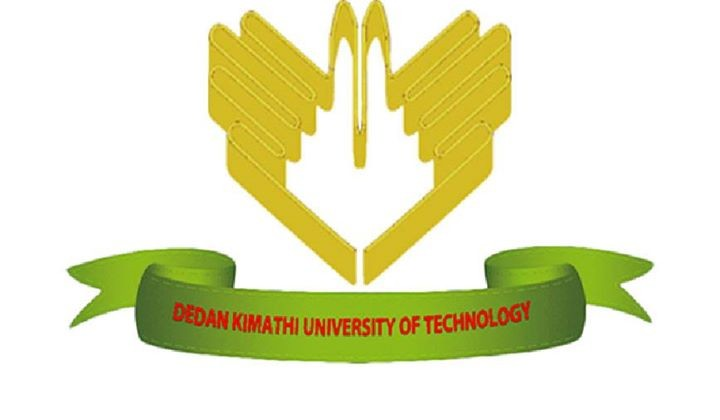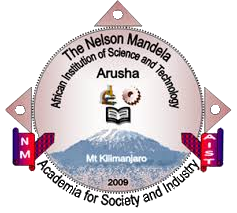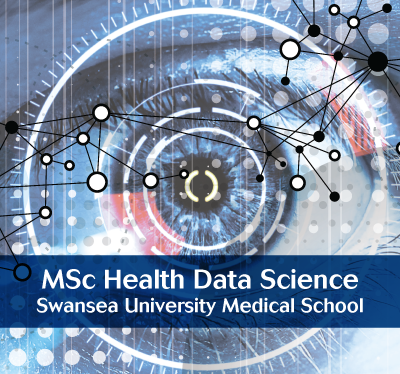Data Science Africa 2017
Arusha, Tanzania
The last few years have witnessed an explosion in the quantity and variety of data available in Africa, produced either as a by-product of digital services, from sensors or measuring devices, satellites and from many other sources. A number of practical fields have been transformed by the ability to collect large volumes of data: for example, bioinformatics with the development of high throughput sequencing technology capable of measuring gene expression in cells, or agriculture with the widespread availability of high quality remote sensing data. For other data sources – such as mobile phone usage records from telecoms operators, which can be used to measure population movement and economic activity – we are just beginning to understand the practical possibilities.
Data science seeks to exploit advances in machine learning and statistics to make sense of the growing amounts of data available from various sources. In Africa, a number of problems in areas such as healthcare, agriculture, disaster response and wildlife conservation would benefit greatly if domain experts were exposed to data science techniques. These skills would allow practitioners to extract useful information from these abundant sources of raw data
In the tradition of previous Africa Data Science workshops, a summer school on machine learning and data science will be held prior to the main workshop. This summer school will target graduate students, researchers and professionals working with huge amounts of data or unique datasets.
The summer school will focus on introductory and advanced lectures in data science and machine learning as well as moderate to advanced practical and tutorial sessions where participants will get their hands wet wrangling and munging datasets and applying cutting edge machine learning techniques to derive inference from the data. Lectures will be given by distinguished world renown researchers and practitioners including researchers from Sheffield University, Amazon, Swansea University Medical School, Facebook, Pulse Lab Kampala, the AI and Data Science (AIR) lab-Makerere University, ARM and Dedan Kimathi University of Technology (DeKUT).
The school will also involve end-to-end tutorial sessions from professionals walking the participants through a real data analytics problem from data acquisition to data presentation. To benefit from this course participants are encouraged to have some background in programming particularly programming with Python.
School programme outline:
Stuff to install..
To ensure we hit the ground running, it is essential you install the prerequiste software and test it out and make sure it is working on your computer. The venue for the summer school will have some computers on which the software will have been installed but you are advised to come with your own laptop with the software installed.
Anaconda
Luckily all the software required has already been prepackaged in a bundle called Anaconda. You can download the various versions of the software for your laptop OS and architecture from the Anaconda website. Please download the Python 3.6 version. Instructions on how to install are next to the download links on the Anaconda website.
Stuff to do..
To ensure that the software is working fine on your machine and to get you up and running, download the following jupyter notebook (right click and ‘save as’) and do the exercises in there. To access it you’ll need to run a jupyter notebook (instructions).
Troubleshooting and comments..
Use the comment section below to (a) ask questions that are not already answered (b) help your peers by providing answers to their questions, if you can.
Summer School Day 1
The first day of the data science school will introduce the jupyter notebook and overview the use of python for analyzing data. We will introduce the machine learning technique of classification and perform lab practicals exploring these techniques.
Time |
Activity |
Material |
|---|---|---|
08:00-08:30 |
Arrival and Registration |
|
08:30-09:00 |
Opening Remarks |
|
09:00-10:30 |
Lecture 1: Introduction to Machine Learning |
|
10:30-11:00 |
Break |
|
11:00-12:30 |
Lecture 2: Introduction to Jupyter and Python |
|
12:30-13:30 |
Lunch |
|
13:30-15:00 |
Practical Session 1 |
|
15:00-15:30 |
Break |
|
15:30-17:00 |
Lecture 3: Introduction to Classification |
|
17:00-18:00 |
Practical Session 2 |
Summer School Day 2
The second day will feature two tracks dealing with applications of data science in health and an introduction to the internet of things.
Time |
Activity |
Material |
|---|---|---|
09:00-10:30 |
Lecture 4: Introduction to data science applications in health / Introduction to IoT session I |
|
10:30-11:00 |
Break |
|
11:00-12:30 |
Practical Session 3 (Health Data Science / IoT) |
|
12:30-13:30 |
Lunch |
|
13:30-15:00 |
Lecture 5: Data Visualisation |
|
15:00-15:30 |
Break |
|
15:30-17:00 |
Practical Session 4 |
|
17:00-18:00 |
Lecture 6: Introduction to IoT session II / Introduction to Reinforcment learning |
Summer School Day 3
The third day will feature a single track of lectures and practical sessions. However, there will be an opportunity for interested participants to explore building sensor systems for data collection during the practical sessions
Time |
Activity |
Material |
|---|---|---|
09:00-10:00 |
Lecture 7: Spatial Data Analysis |
|
10:00-10:30 |
Lecture 8: Machine Learning at Amazon |
|
10:30-11:00 |
Break |
|
11:00-12:30 |
Practical Session 5 / Building Sensor Systems for Data Collection |
|
12:30-13:30 |
Lunch |
|
13:30-15:00 |
Lecture 9: Introduction to Deep learning |
|
15:00-15:30 |
Break |
|
15:30-17:00 |
Practical Session 6: Deep learning with Pytorch / Building Sensor Systems for Data Collection |
|
17:00-18:00 |
Panel Discussion and Wrap Up |
The summer school is now fully subscribed, and registration has closed.
Call for Registration
The workshop will be organized around paper presentations and interactive panel discussions. We invite participants interested in presenting work at the workshop to submit a short abstract describing the application of data science methods to problems relevant to Africa. These may include, for example, the following areas:
- Data Science for the Sustainable Development Goals
- Healthcare
- Agriculture
- Wildlife conservation
- Disaster response
- Geospatial modelling
- Telecommunications data modelling
- Economic monitoring
During the panel discussions, we will unite a wide range of stakeholders, including data scientists, representatives from government, development practitioners and the private sector; this will provide a unique setting in which innovative solution driven ideas can thrive.
Participants will also develop a framework for attracting young African talent, mentors and researchers from academia, the public sector and the private sector in Africa to engage in activities geared towards harnessing big data and real-time analytics for the public good.
Workshop programme outline:
Workshop Day 1
Time |
Presentation |
|
|---|---|---|
08:00-09:00 |
Arrival and Registration |
|
09:00-09:30 |
Workshop Opening |
|
09:30-10:00 |
Keynote 1: Who are health data scientists |
|
10:00-10:20 |
Using spatial features of human settlement to predict epidemic properties |
|
10:20-10:40 |
Understanding maternal health service utilization |
|
10:40-11:10 |
Coffee Break |
|
11:10-11:30 |
Machine learning for targeted communication in emergency |
|
11:30-11:40 |
Crowd sourcing ‘Big’ clinical data from small health facilities |
|
11:40-11:50 |
Data Revolution: A fitting Model for Development countries |
|
11:50-12:00 |
Enabling Data Revolution |
|
12:00-12:10 |
How Data Science is solving life-threatening problems in Africa plus the way forward |
|
12:10-13:00 |
Health Data Science Panel |
|
13:00-14:00 |
Lunch Break |
|
14:00-14:30 |
Keynote 2: Understanding Africa's Wildlife Heritage Through the lens of Genome Data |
|
14:30-15:00 |
Keynote 3: Habari Node's Experience creating a Datacenter and Cloud Services Infrastructure |
|
15:00-15:20 |
Mining voter sentiments from Twitter data for the 2016 Uganda Presidential elections |
|
15:20-15:40 |
Using Social Media for Public Safety Monitoring |
|
15:40-16:00 |
Algorithmic opportunities in revealing trends of food crisis from news online articles |
|
16:00-16:20 |
Mobile Phone Data for Disasters Management |
|
16:20-17:00 |
Panel Discussion - Mining Social Networks |
Workshop Day 2
Time |
Presentation |
|
|---|---|---|
09:00-09:30 |
Keynote 4: IoT data and insights for everyone |
|
09:30-10:00 |
Keynote 5: Addressing challenges through geospatial modelling in Kenya |
|
10:00-10:20 |
KAZNET: Leveraging digital and crowdsourcing technology for livestock market data collection |
|
10:20-10:40 |
Sensing with Farmers; crowdsourced adhoc crop surveillance |
|
10:40-11:00 |
A time series review of forest production and trade trends across the tropical region |
|
11:00-11:30 |
Coffee Break |
|
11:30-11:40 |
Convolutional Neural Network for Appliance Recognition in Energy Disaggregation |
|
11:40-11:50 |
Images - the all important developing world data format |
|
11:50-12:00 |
Modeling Wireless Sensor Network For Forest Temperature and Relative Humidity Monitoring in Usambara Mountains - A review |
|
12:00-12:10 |
A Weather Forecasting Model for Farmers in Arusha |
|
12:10-12:20 |
Jaguza Livestock App |
|
12:20-12:30 |
Air quality monitoring in Uganda |
|
12:30-12:40 |
Bank At Hause – Factor Xchange |
|
12:40-14:00 |
Lunch Break |
|
14:00-14:30 |
Keynote 6: |
|
14:30-14:50 |
Monitoring economic indicators in Sub-Saharan Africa |
|
14:50-15:10 |
Price predication for the agricultural commodities. |
|
15:10-15:30 |
Prediction Modelling of Academic Performance, a Data Mining Approach |
|
15:30-15:40 |
Challenges facing data management for community based education and services programs |
|
15:40-15:50 |
Radio mining and rapid-deployment speech technology for humanitarian early warning in Uganda |
|
16:20-17:30 |
Panel Discussion - Opportunities for Collaboration around Africa |
The workshop is now fully subscribed, and registration has closed.
Collaborators







Sponsorship
Gold Sponsors
Silver Sponsors
Sponsoring Data Science Africa 2017 Event is a great way to communicate your commitment to support the achievement of the sustainable development goals. To become a sponsor, please contact Data Science Africa at info@datascienceafrica.org




